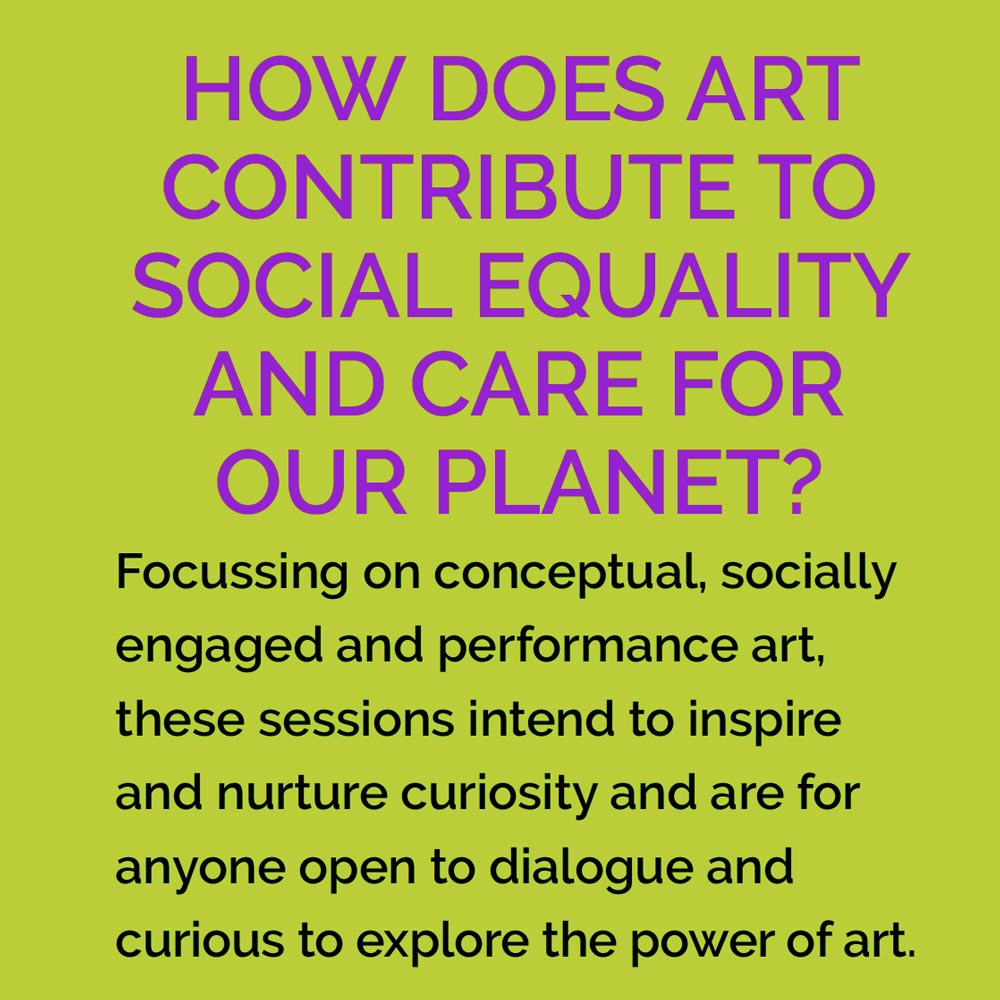
NEXT SET OF SESSIONS AT STUDIO MARGRET WIBMER STARTS ON TUESDAY FEBRUARY 25th, 7 – 9 pm. 5 sessions: Euro 200,– Max. participants: 6 Contact us for more information.
Studio Margret Wibmer offers workshops focussing on socially engaged art practices. Produced in collaboration with the US based Institute for Cultural Activism International These sessions are for anyone open to dialogue and curious to explore the power of art.
About: Participants will be introduced to artistic practices by renown artists and art collectives around the globe. Together, we will explore how these artists translate personal observations, experiences and concerns into impactful works of art, engaging the public and strengthen community. We will discuss methods used to create awareness of pressing issues and how these artist engage and empower audiences. The workshops invites active participation and dialogue. The work examples introduced will be discussed with regards to participants personal and professional interests.
Margret Wibmer is an internationally exhibited artist, participatory art producer and art educator, with intimate knowledge in contemporary arts and breaking developments in the field. Since 2021 she is adjunct lecturer at NAFA Academy of Fine Arts Singpore. In 2022 she joined I.C.A.I. , a US based non- for profit organisation, as board member and performer.
Testimonial by Anastasia Nefedova
I’m still reflecting on some of the topics we explored during the recent course at Margret’s studio. She introduced us to the work of contemporary artists who are shaping the world today through socially, politically, and community-engaged art. The course wasn’t just an opportunity to learn something new; it also fostered meaningful discussions and the exchange of ideas within our group. We came from diverse professional backgrounds and brought different life experiences to the table, yet Margret skilfully connected us through our shared curiosity and passion for art. She enriched the sessions by sharing her own art projects and introducing us to her inspiring colleagues from The Institute for Cultural Activism International (USA). Whether you’re well-versed in art or just starting out, Margret’s course offers a lot to discover. For me, it was a transformative experience that broadened my perspective—not just on art but also on the world around us and the social changes we face today.
Related projects
Salon d’Amour – participative performance
Time Out – participative performance
Breathe – dreams may follow
Workshop for dance, fine art and fashion students resulting in a live theater performance
In this workshop, the dancers explore space, and the vital materiality of the human body and textiles through improvisation and meditative movement from Asian Dance techniques. The design of the garment is based on a concept Margret Wibmer has developed over a number of years under the conceptual umbrella of Infinite Play. This time Wibmer shared the projects underlying artistic research with a select group of NAFA Dance, Fashion and Fine Art students and invited them to explore her work through their own process of making, performing and reflection, resulting in the production of a staged performance.
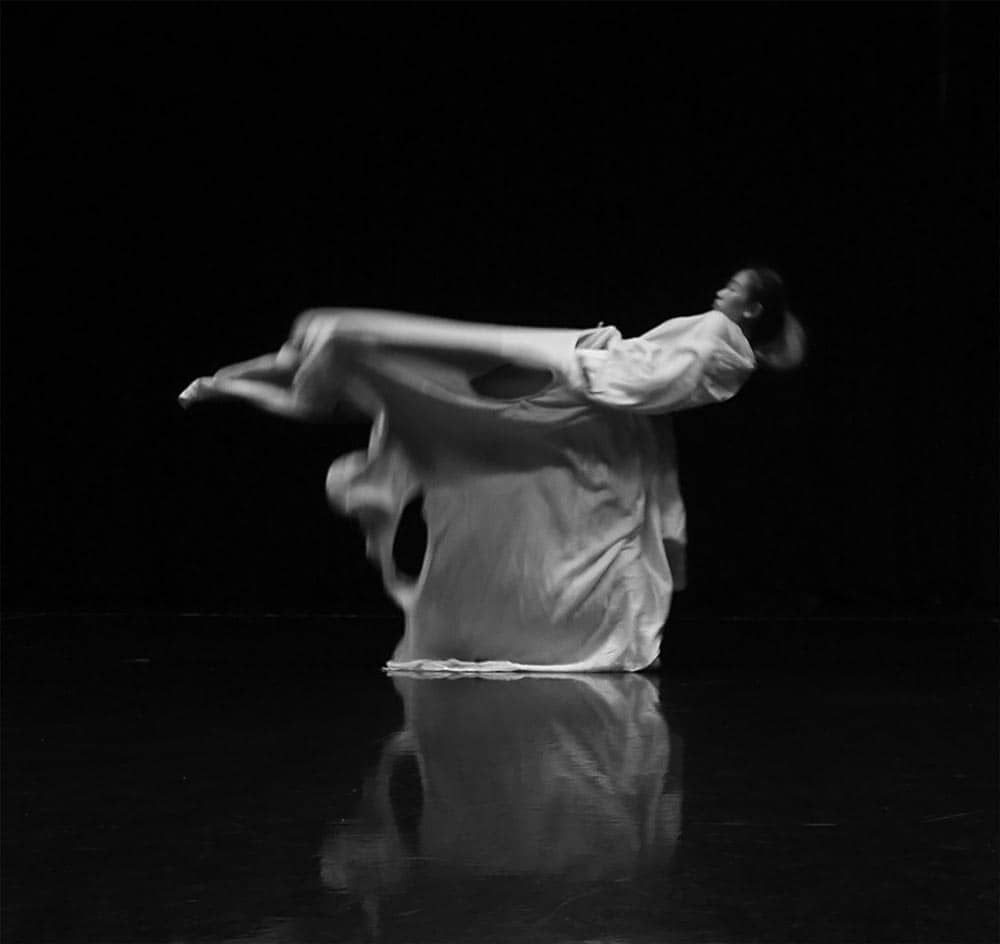
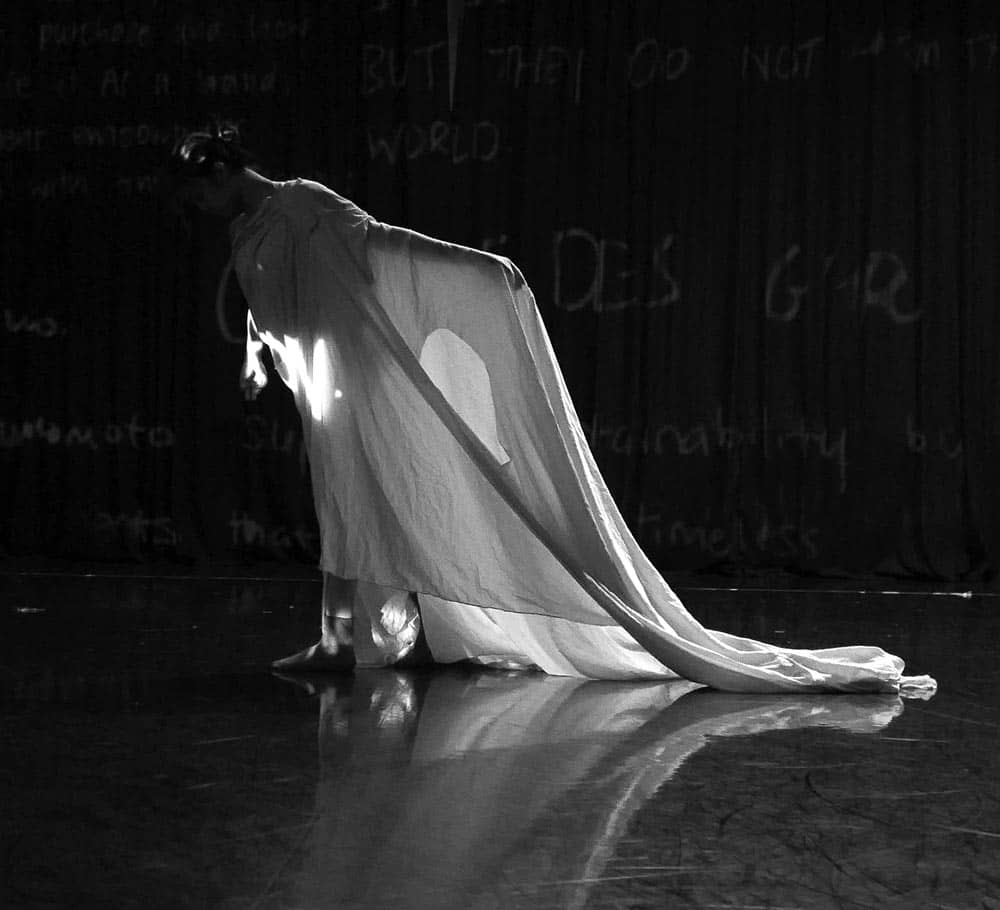
Industry project – Nanyang Academy of Fine Arts Singapore / January 2020 / Made possible with generous support by the Austrian Embassy Singapore and Lenzing AG.
The click of the scissors
Workshop for students Master of Fashion Design students, RMIT University Melbourne
The workshop investigates the relationship between body and garment through media and performance. Participating students explored alternative methods of constructing garments and accessories, translating and interpreting images beyond appropriation, creating narratives around the body, wearable shapes and textures that invite the imagination.
“The cut of the scissor is like the click of a camera or the whirl of a movie camera, like a stroke of the pencil or paintbrush: all these acts decisively isolate a form or representation, marking a surface that generates a reality. The cut puts an end to the traditional representation of the image, dissolving it and then restoring it as a testimony to the artist’s vision and understanding… [i]ts use unites artists, photographers, designers and tailors …”
Germano Celant, To Cut is to Think (Art/Fashion – 1996)
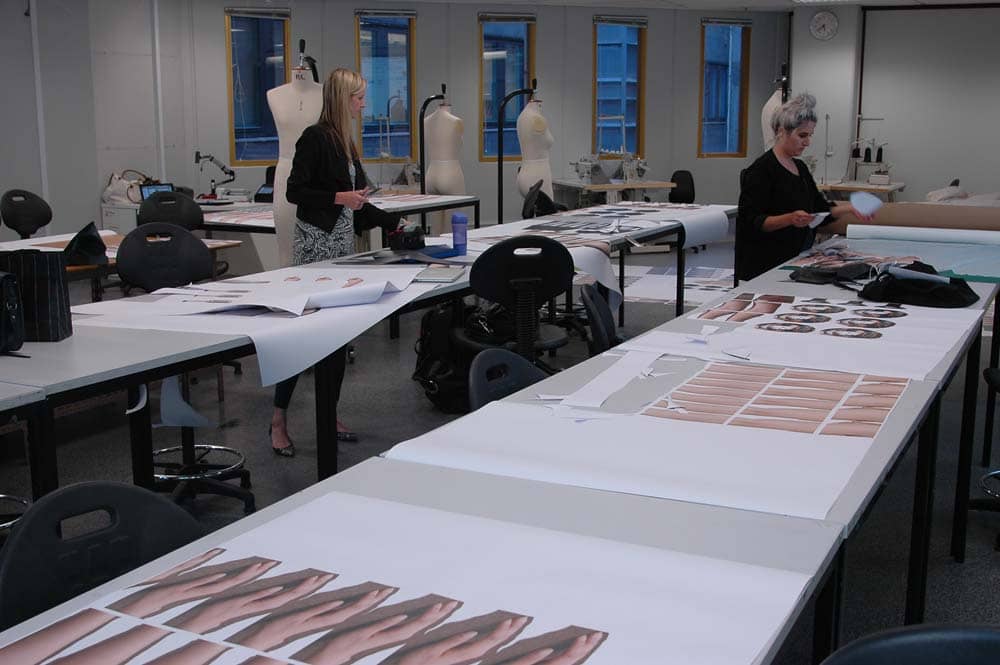
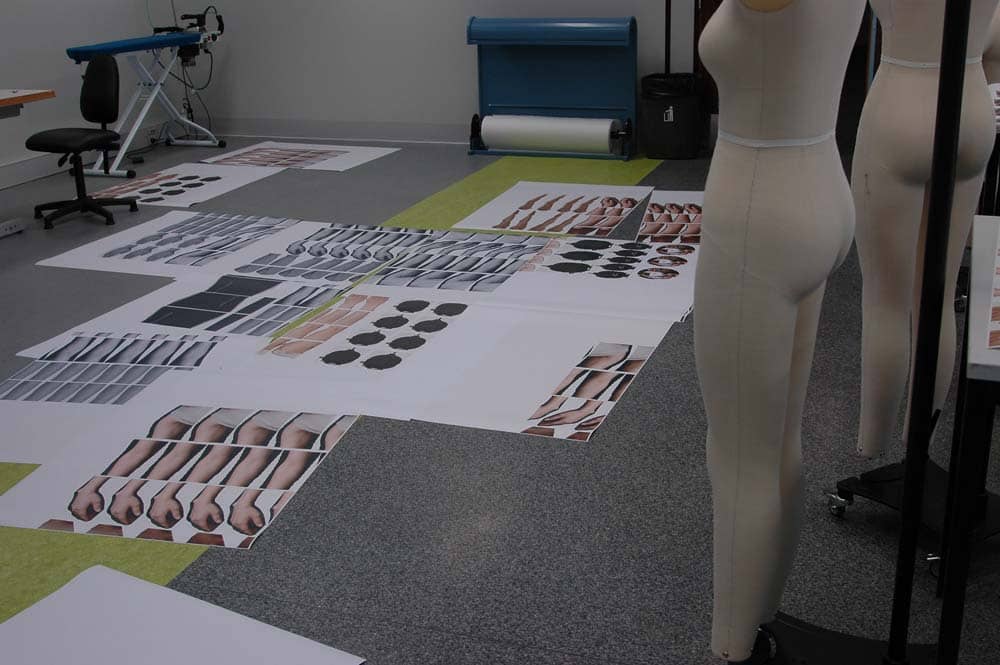
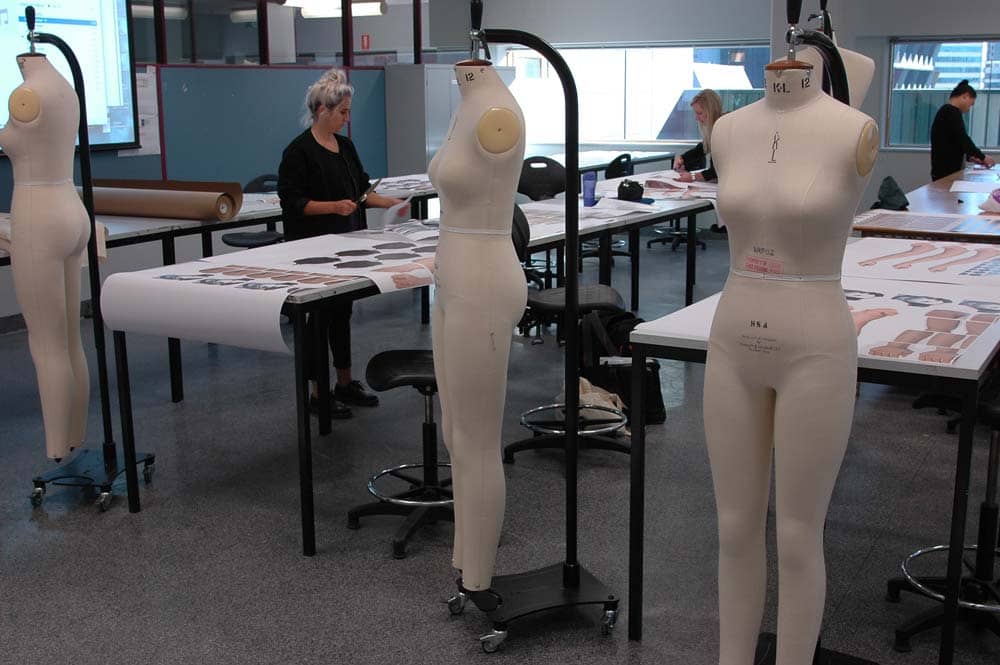
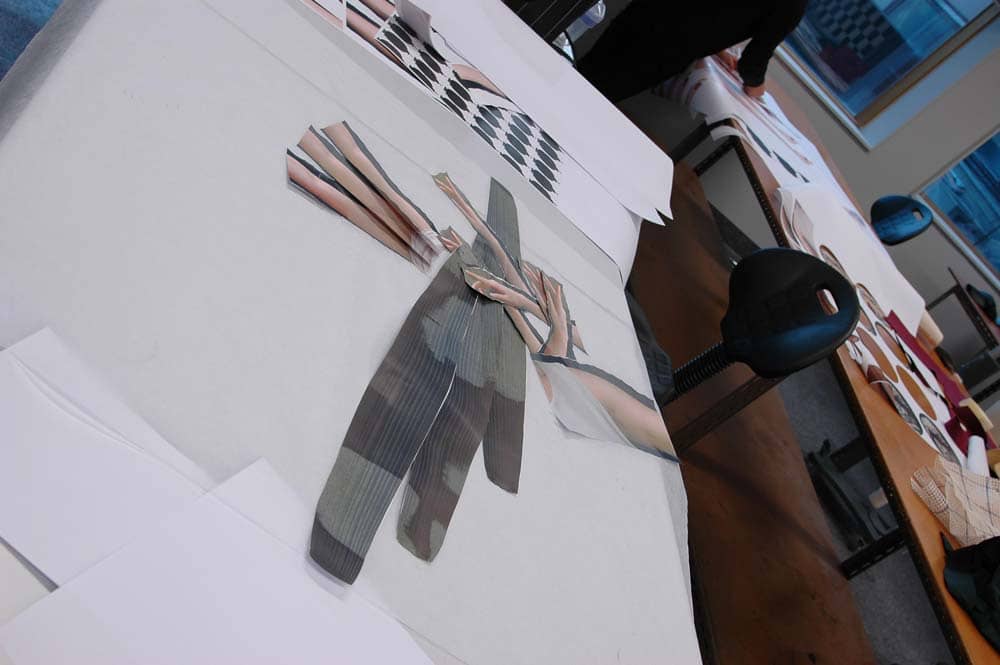
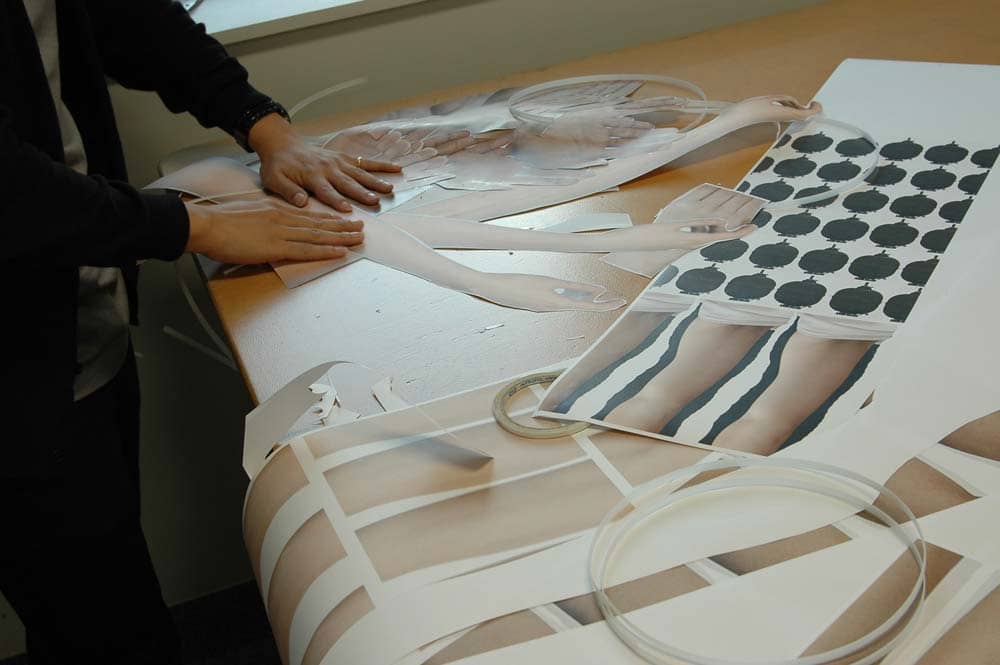
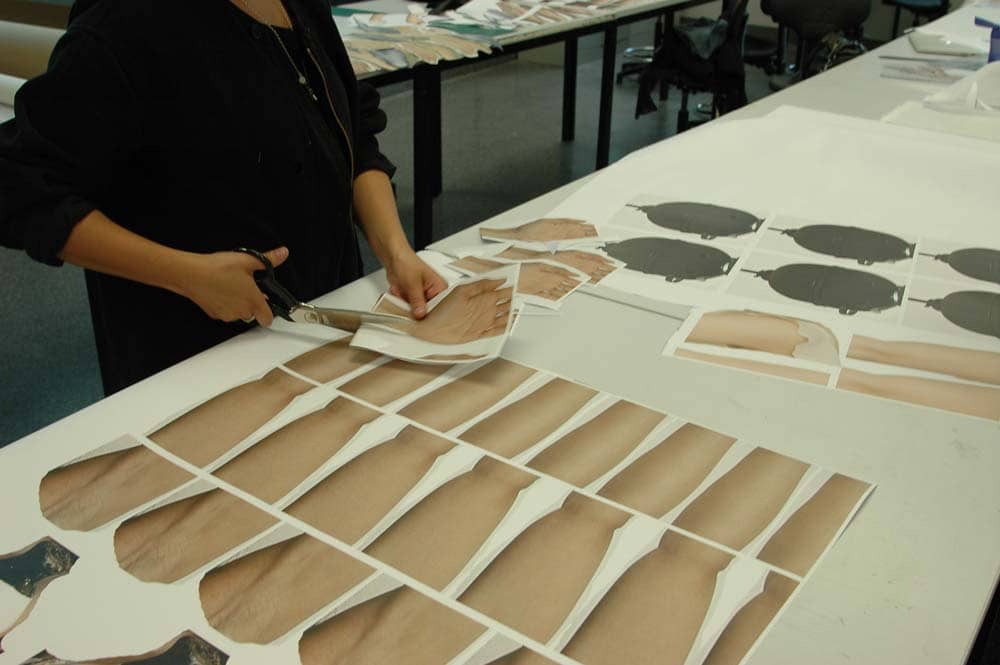
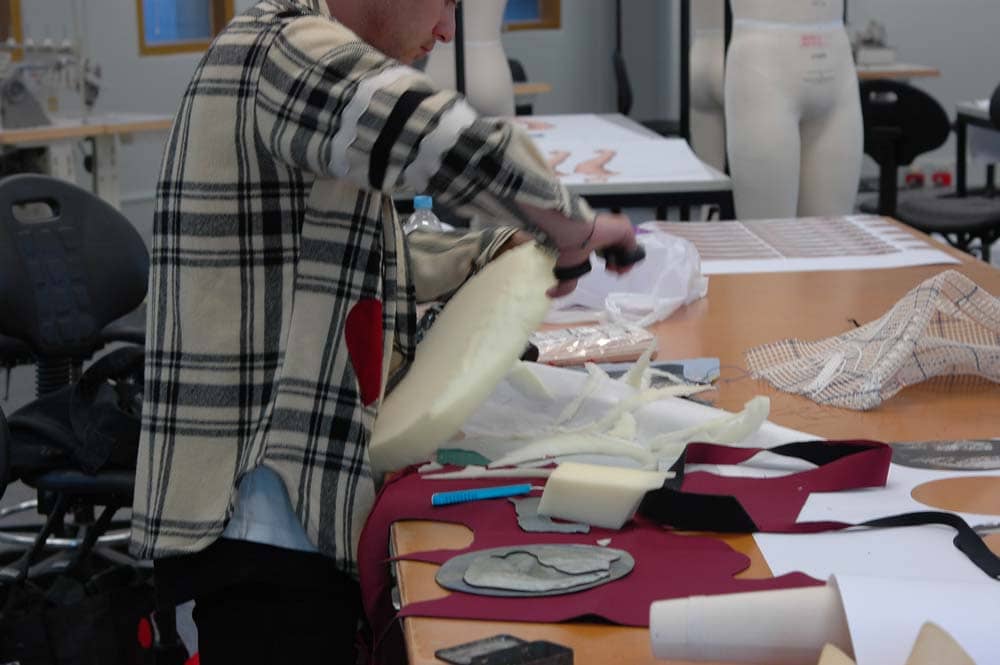
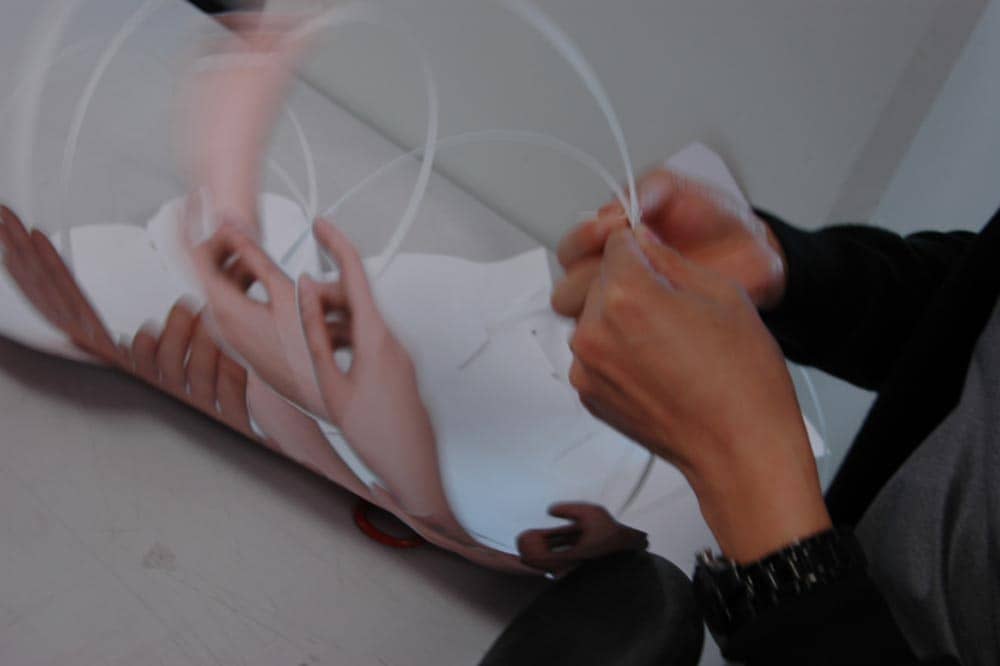
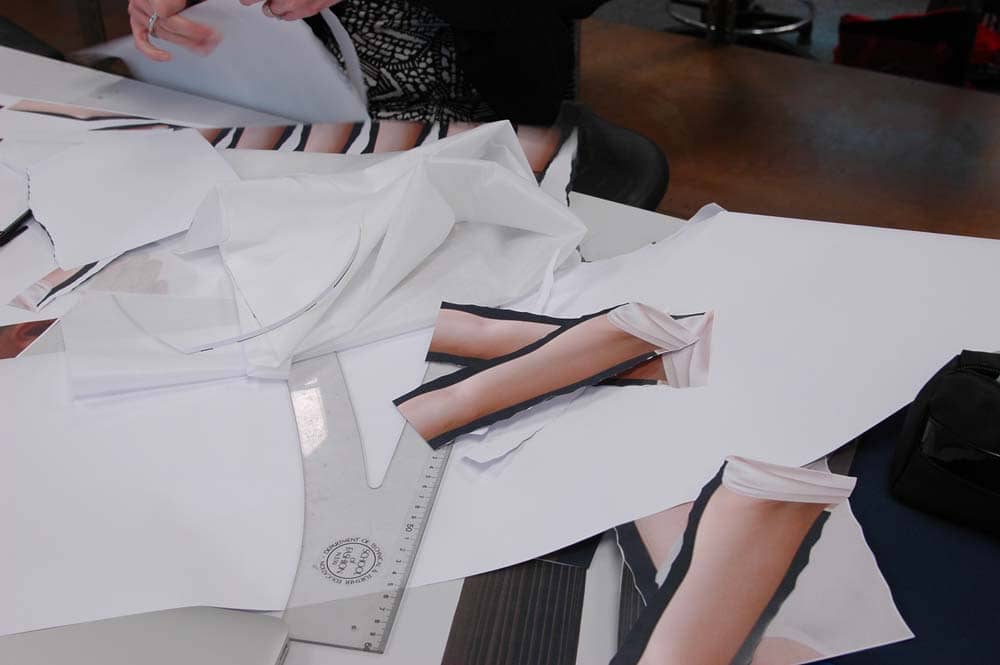
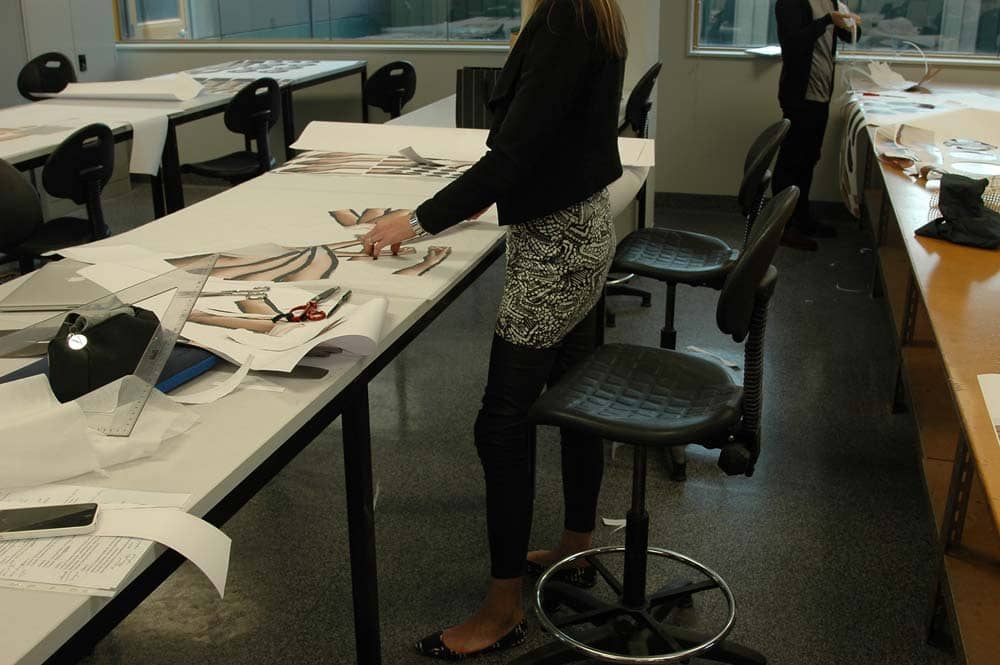
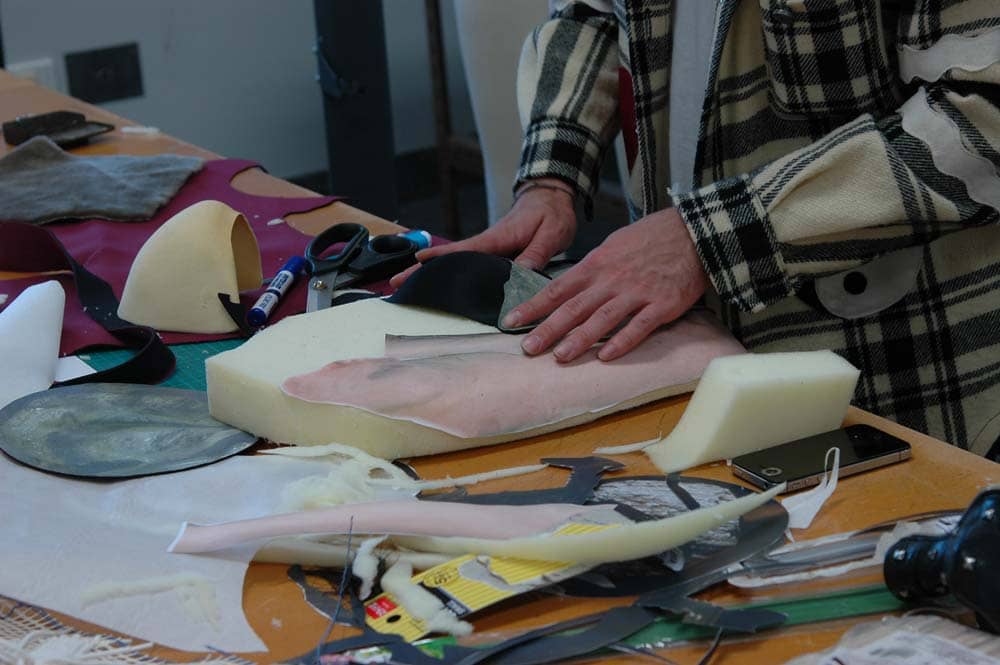
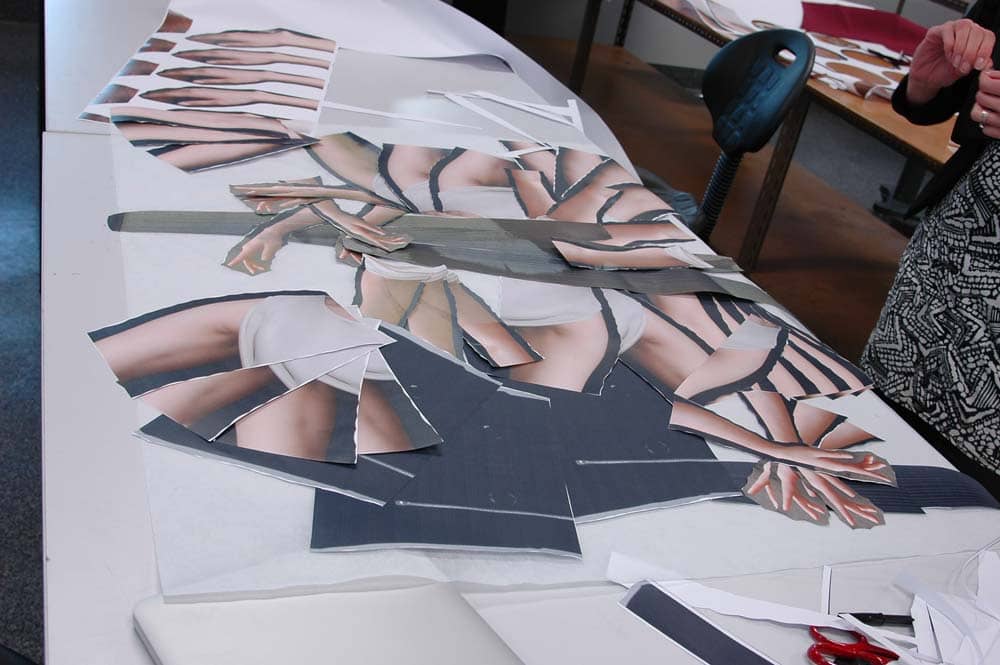
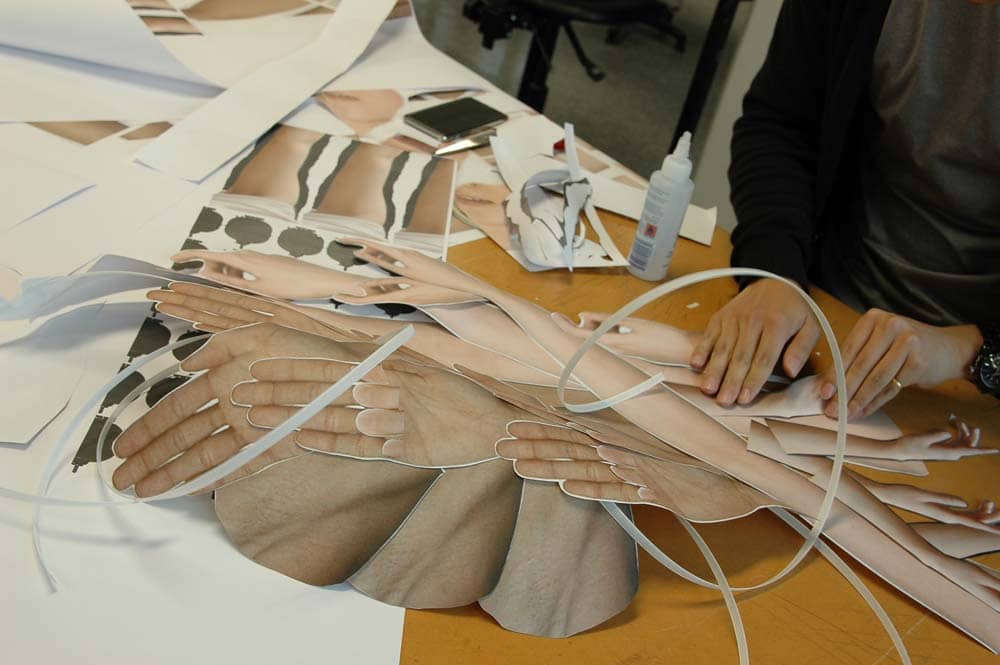
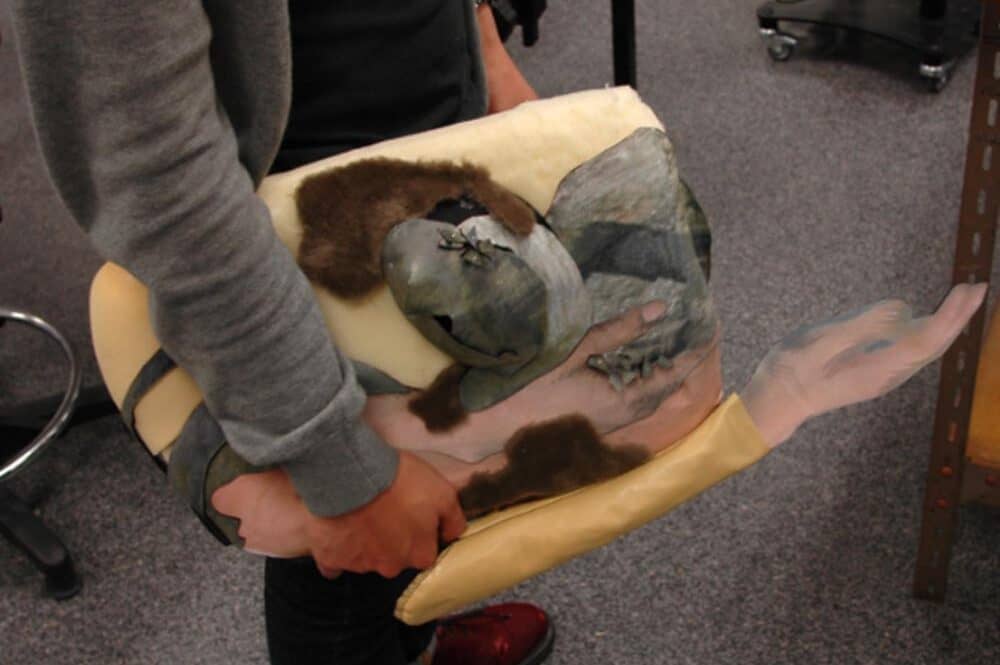
RMIT University Melbourne. Course director: Dr. Jessica Bugg / Participants: Chris Ran Lin, Annette Martin, Vladislav Kanevsky, Blake Barns and Toshelen Cherrie.
Reconstruction
Participative workshop
The walls of the exhibition space are covered in large digital prints depicting fragments from Margret Wibmer’s photographic series Reconstruction, arranged in serial order. The public is invited to cut and create their own compositions. The workshop which invites participants from all walks of life, amateurs as well as professionals, reflects notions of authorship and appropriation.
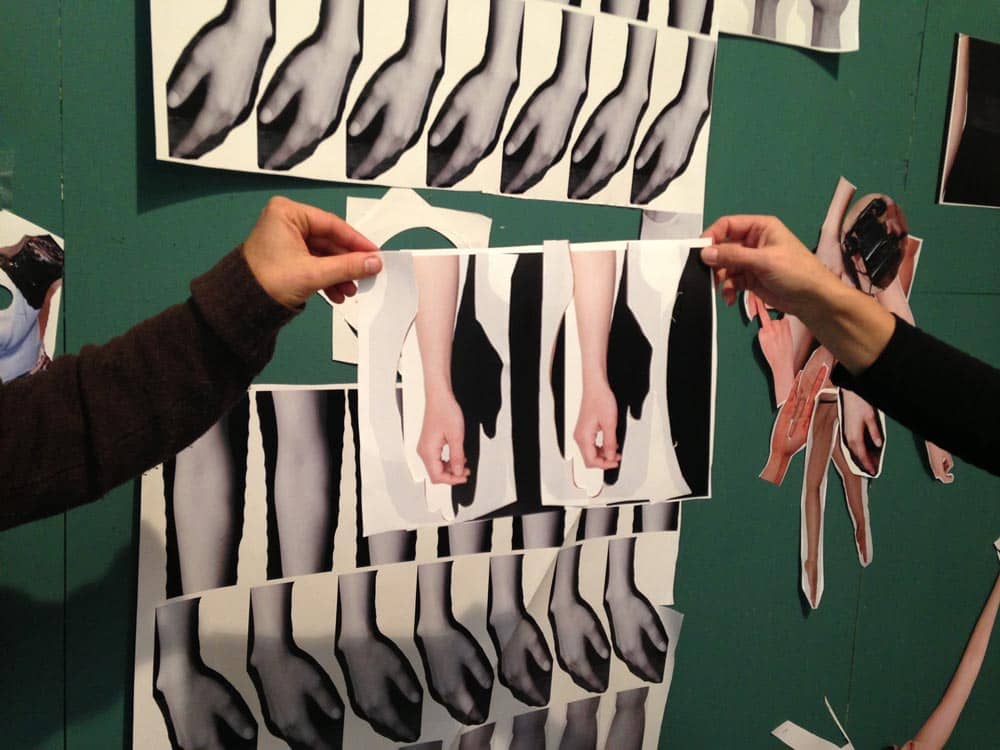
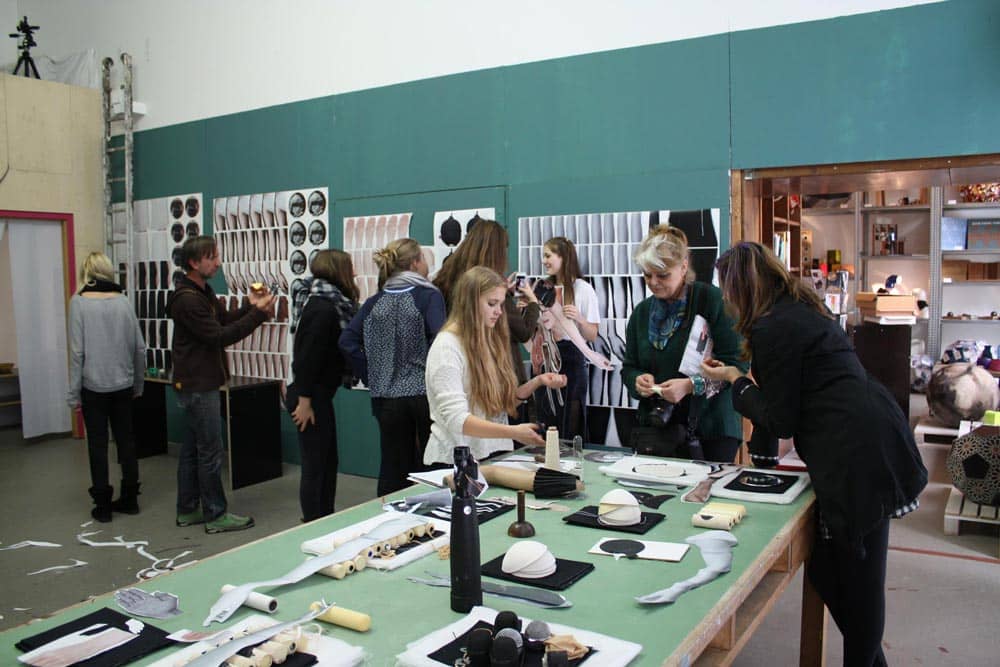
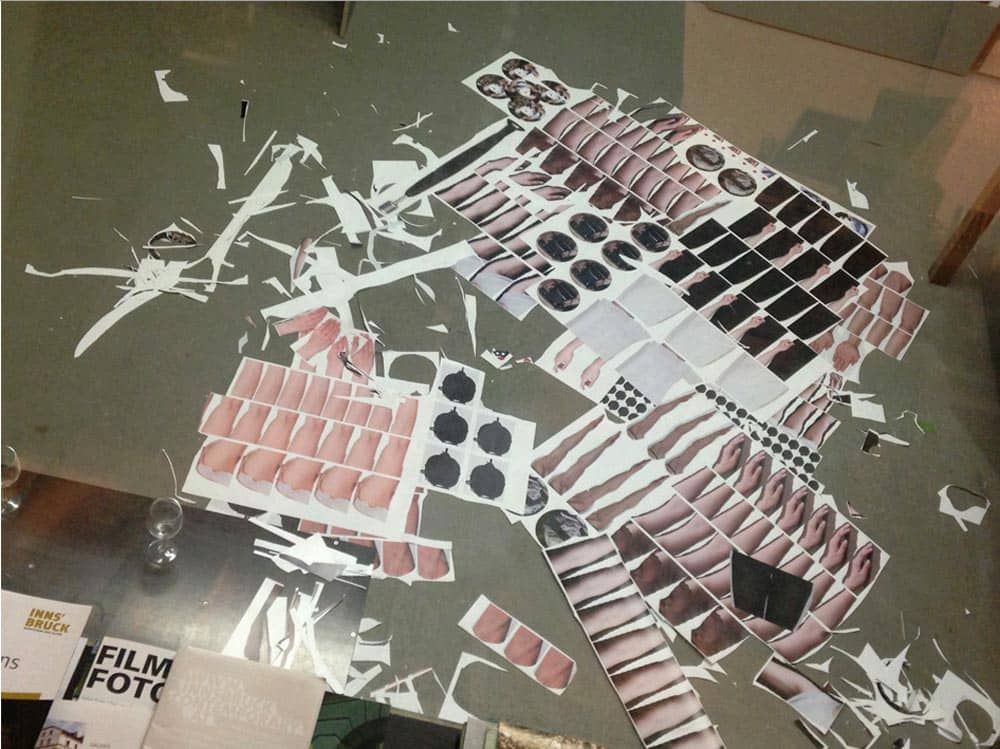
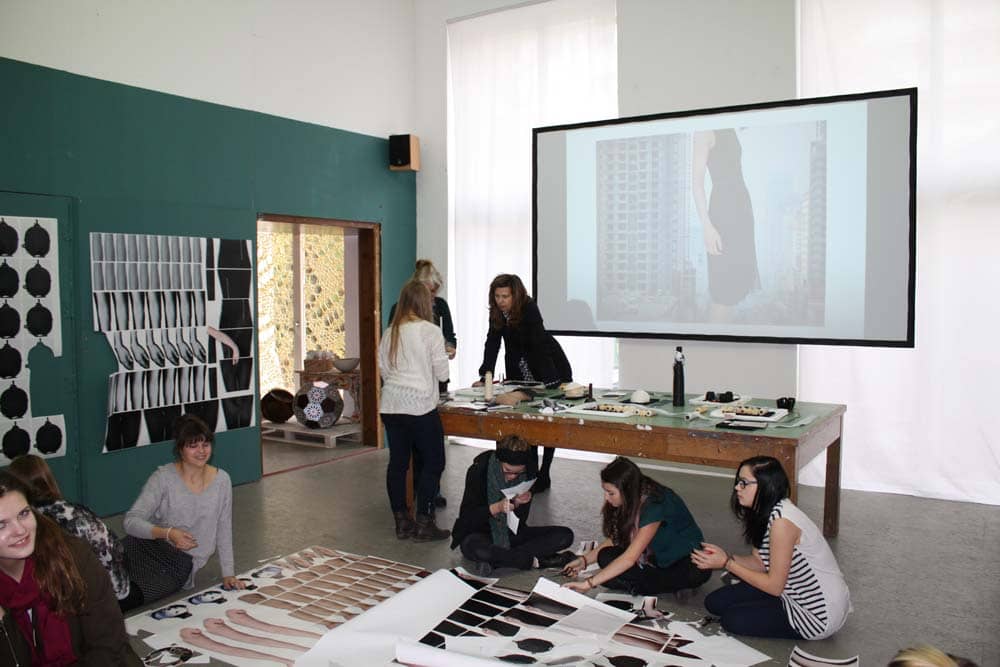
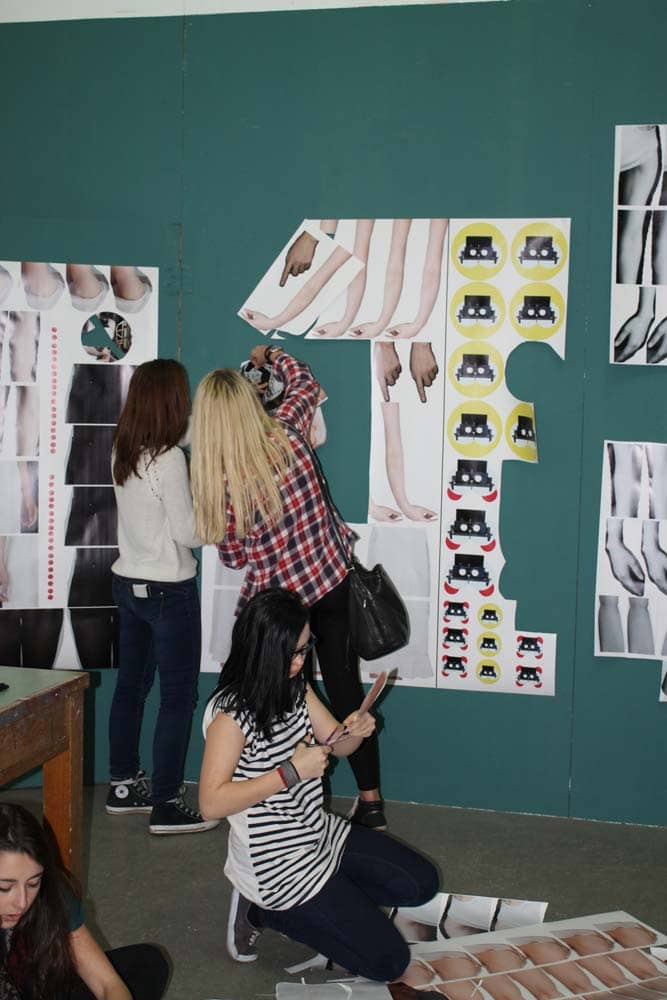
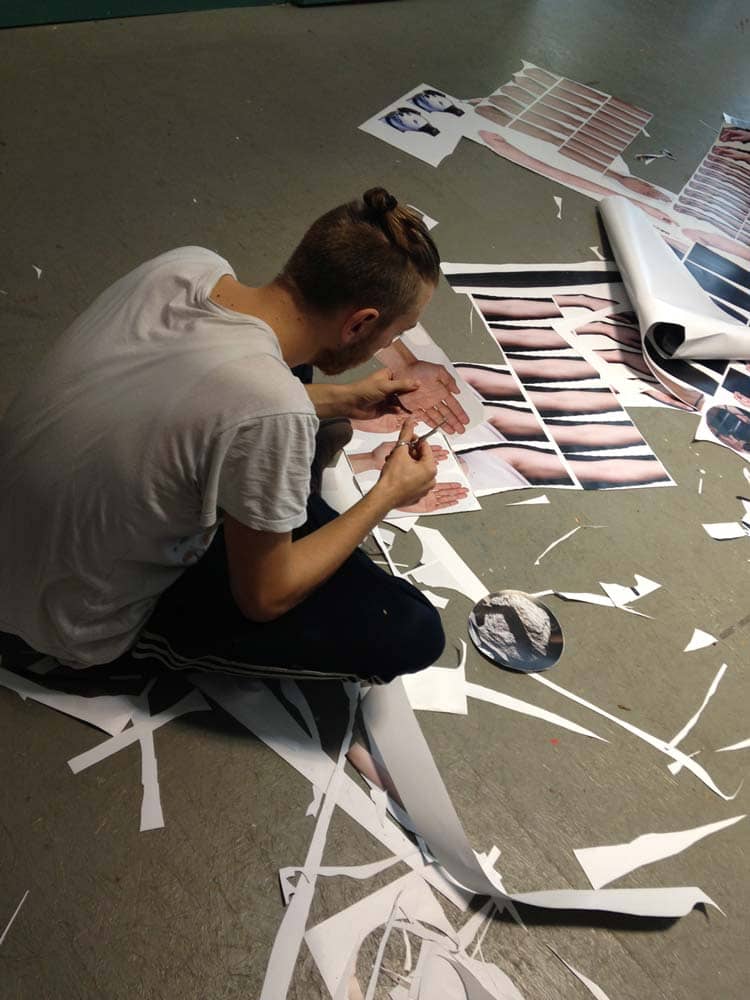
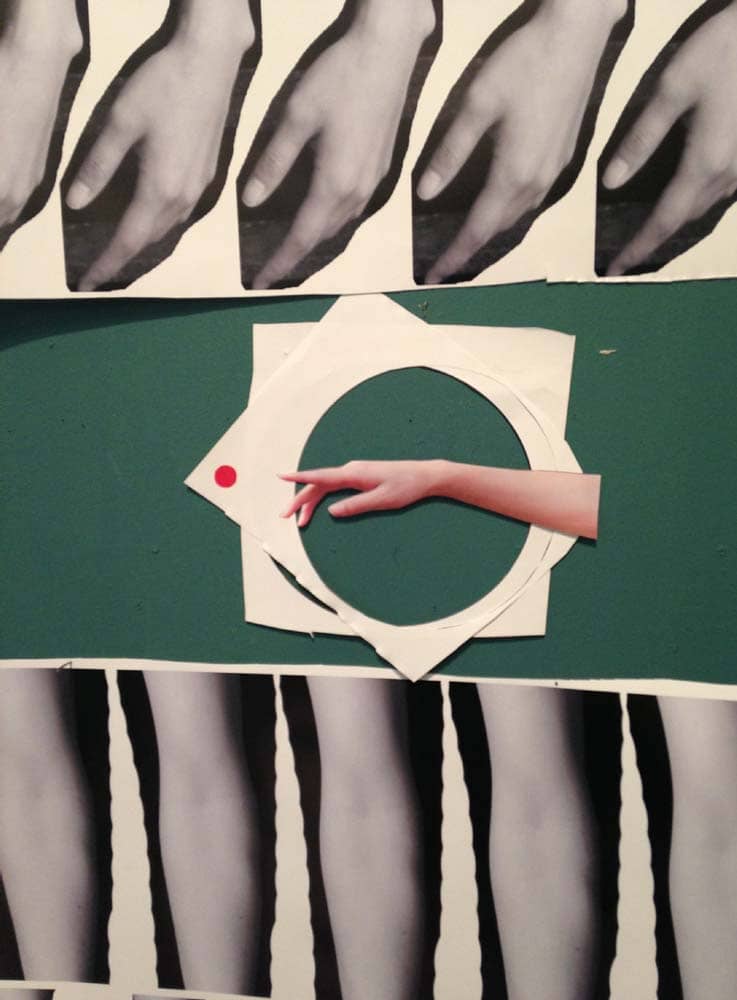
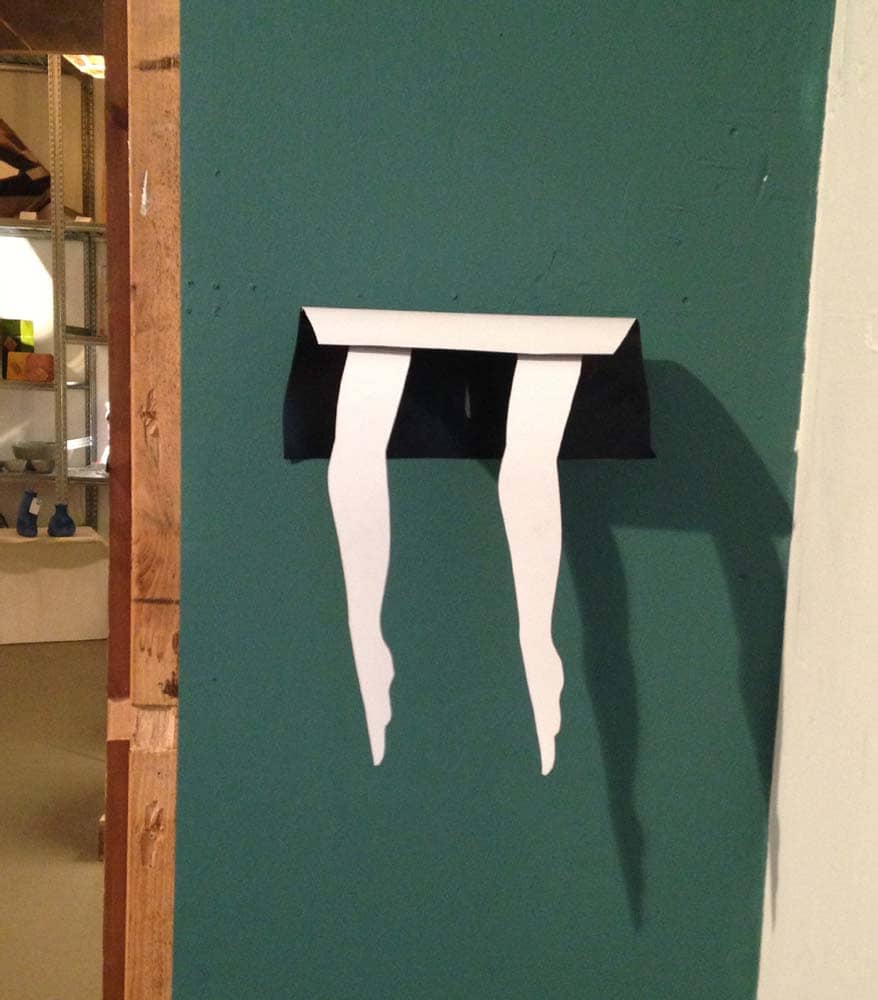
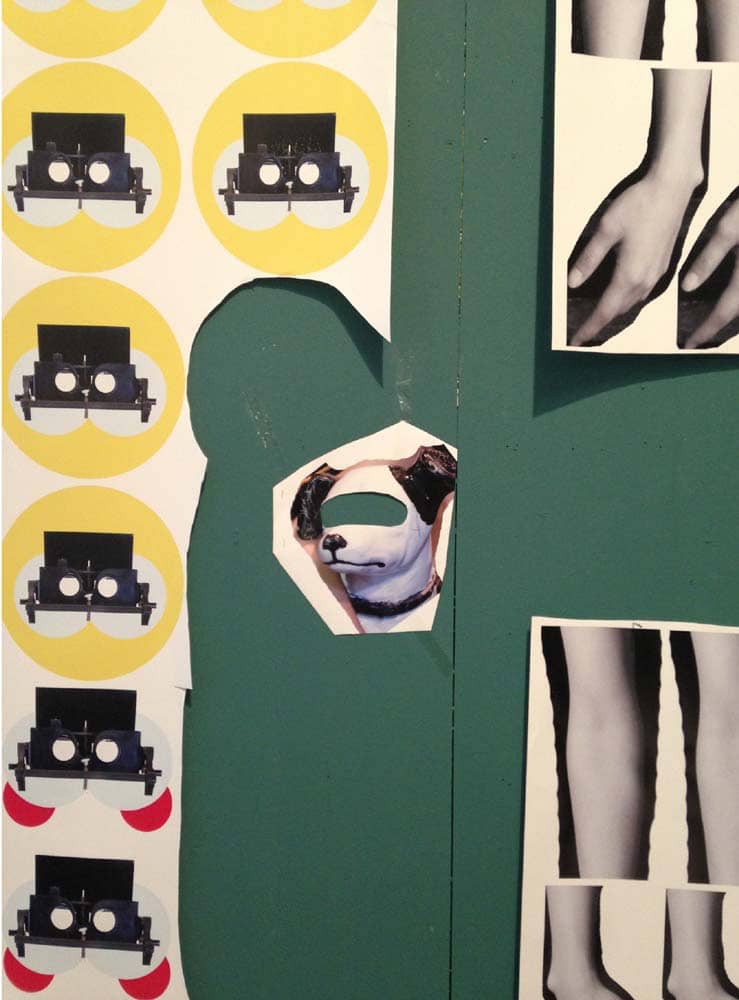
Styleconception, Innsbruck / During Premierentage Innsbruck 6 – 8 november 2014
Transition
Participative workshop
Visual artist Margret Wibmer and curator and artist Akane Naka-Mori developed a joint project based on researching the power of the traditional Japanese tea ceremony. After the first event, a performance and video production at Nishida Kitaro Museum of Philosophy in Kanazawa , they developed a tailor-made event for senior leaders, taking place at the Conservatorium Hotel in Amsterdam. Participants were invited to experience materials, objects, sound and movement through carefully planned actions, intended to prolong the process of perception and sharpen the senses. This exclusive event was conducted by tea ceremony master Fuyuko Kobori from Tokyo, a 17th generation member of the famous Kobori Enshue family. Contemporary composer Minowa Norihito wrote a soundscape in six parts for this event, based on the theme of a gallant young warrior and inspired by the Japanese legend of Urushima Taro. According to that story, our tea ceremony master Fuyuko Kobori represents the princess of the floating land. Minowa used the voice of a woman and the sound of water for his compositions. The sound is meant to refresh the senses and to restart anew.
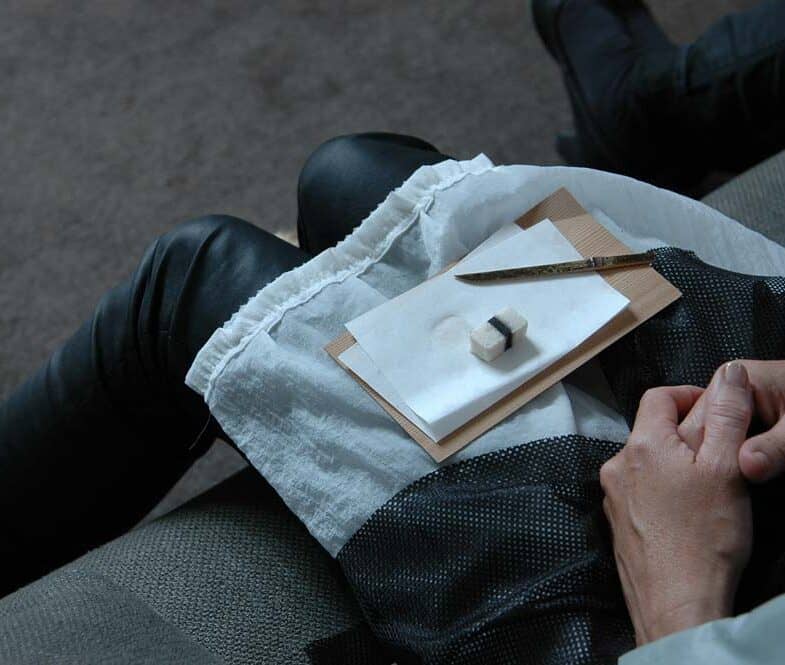
Transition / Conservatorium Hotel, Amsterdam, 2013
Concept and production: Akane Naka-Mori and Margret Wibmer / Tea ceremony master: Fuyuko Kobori / Dance: Kiyomi Yamashita / Soundscape: Minowo Norihito / Kimono design: Mamechiyo / Design garments for participants: Margret Wibmer
Organiser: Isrid van Geuns. ‘Transition’ was supported by Fumuroya Company, Yoshidaya Syuzouten Co.,Ltd., Sakakobo Taro and The Conservatorium Hotel, Amsterdam.
